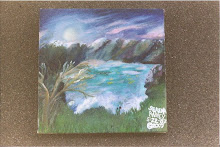It's easy this time.
Women is plural. Woman is singular. The part that's spelled differently is the second syllable while the part that's pronounced differently is the first syllable. It's OK; it doesn't make sense. It's something we just commit to memory.
Man is singular. Men is plural.
Woman means female person. It used to be Wifman. I am Wifman.
Man means person.
The old Proto-Germanic word for male is Wer. Werman sounds a lot like Wifman. It might have sounded too close and annoyed people who were trying to talk while washing clothes in a stream or steering a ship or sawing wood, so they started to say other things to be clearer.
Man therefore means person, humanity, and adult male human being. It seems unfair, but would you prefer to go around saying, "Not a werman, a wifman. He was talking to a strange wifman. I said...."?
Lord is short for Laefgeard. It means bread guardian. Lady means Laefdaeg. That is, bread kneader. Long ago, it wasn't the poor who made and guarded food and the rich who flew to the islands to watch the sunrise. It was the rich who made and guarded lots of food and the poor who rafted to the islands to search for food there.
Soon, Lord and Lady meant landowner. Owning food wasn't enough anymore. Most of the poor had that.
Master and Mistress mean major person and major female person. They also meant owner, boss. Mistress became Mrs. and Miss, which were interchangeable in the 18th Century. Master became Mr. Originally, when a man referred to the woman he admired as his mistress, he meant he would never touch her. She was his faroff ideal. He did things to impress her. And she was married -- he was a single man. Bachelorhood was a low rank of knighthood. A bachelor admired a mistress, the owner of his heart, and proved himself. When he graduated he married someone else. He was expected to be chaste during all that bachelor adventuring. Over the years and centuries the meaning nearly reversed.
Hussy is short for Huswif -- housewife. Husband comes from Husbond -- owner of the house. A man had to have a stable living situation to get married. And that might very well be more literal than anyone liked, if the stable was the only solid roof on the croft.
Knave just means boy. Girl means growing, and used to mean anyone, male or female, between around eight and fifteen. Maid was once unisex too -- long, long ago. It meant someone old enough to marry but usually not yet married. It comes from the word for marriage, the root of match, mate, meet, and many more words that sound like them. Maiden meant a small girl, and somewhere along the way the two words switched. Maiden became the term for a virgin, a woman never married, and maid meant a little girl. Since children served in homes before looking for spouses (the people who never served also didn't choose their own spouses), maid came to mean a servant woman, knave a servant man. Page means child and now means a messenger or office assistant, for the same reason.
What has happened to way back when? What has happened to then? What has happened, if I may clarify, to than?
Then is not the same word as than. In some places they aren't even pronounced the same way. Than rhymes with man. Then rhymes with ten, which means that if you are west of the Great Divide or south of the Mason-Dixon Line it also rhymes with thin and tin -- it just does. We like it that way.
If you had been here then you would know there is nothing more annoying than people from back east telling you to say then their way.
Suddenly the Internet has filled up with the use of than by itself. "I walked into a party and saw nothing than gossip." "He is nothing than a friend." "I don't know what to say than it's over between he and I". Stop saying that. Please.
It should be, "nothing other than gossip", or, "nothing but gossip" or, "nothing more than gossip". "He is nothing more than a friend." "He is nothing but a friend." "He is but a friend." "I don't know what to say other than that it's over between him and me."
I guess that's all, man. I have nothing more to add to that tonight.
Thursday, July 30, 2009
Subscribe to:
Post Comments (Atom)





No comments:
Post a Comment